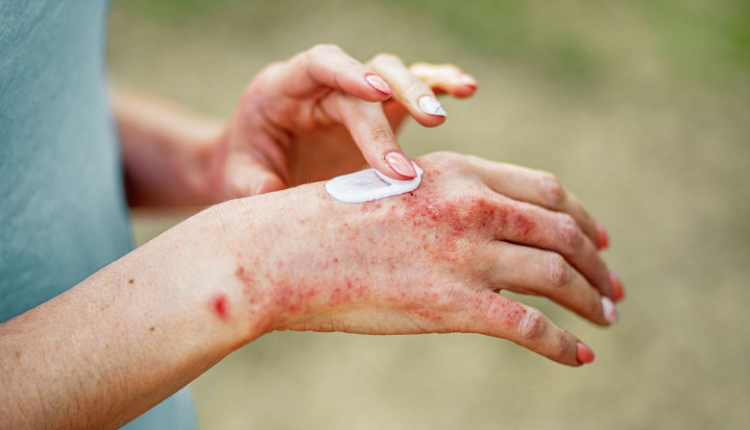Understanding Eczema: A Comprehensive Guide to Managing Eczema Allergies
Eczema, also known as atopic dermatitis, is a chronic skin condition characterized by inflamed, itchy, and red patches of skin. While the exact cause of eczema is not fully understood, it is believed to result from a combination of genetic, environmental, and immunological factors. One significant trigger for eczema flare-ups is allergies. This article delves into the relationship between eczema and allergies, offering insights into symptoms, triggers, and effective management strategies.
What is Eczema?
Eczema is a common skin condition that affects millions of people worldwide. It often begins in childhood and can persist into adulthood. The symptoms of eczema include:
- Intense itching: The hallmark of eczema, leading to scratching and further skin damage.
- Red, inflamed skin: Areas of the skin become red and swollen, often feeling warm to the touch.
- Dry, scaly patches: The skin may become dry, rough, and scaly, sometimes cracking and bleeding.
- Blisters and oozing: In severe cases, blisters may form and ooze fluid, leading to crusting.
The Allergy Connection
Many individuals with eczema also have allergies, suggesting a strong link between the two. Allergens can trigger or worsen eczema symptoms. Common allergens include:
- Food Allergens: Common food triggers include dairy, eggs, nuts, soy, and wheat. An elimination diet can help identify and manage food-related triggers.
- Environmental Allergens: Pollen, dust mites, pet dander, and mold are frequent culprits. Regular cleaning and air purifiers can reduce exposure.
- Contact Allergens: Certain fabrics, soaps, detergents, and skincare products can irritate the skin and trigger eczema flare-ups.
Managing Eczema Allergies
Effectively managing eczema involves a multi-faceted approach. Here are some strategies to consider:
- Identify and Avoid Triggers: Keeping a diary of symptoms and potential triggers can help pinpoint specific allergens. Once identified, take steps to avoid these triggers as much as possible.
- Maintain Skin Hydration: Regularly moisturizing the skin helps maintain the skin barrier and prevent dryness. Opt for hypoallergenic and fragrance-free products to minimize irritation.
- Use Medications as Prescribed: Topical corticosteroids and other prescribed medications can help reduce inflammation and control itching. Follow your healthcare provider’s instructions carefully.
- Implement Good Skincare Practices: Bathe in lukewarm water, use gentle cleansers, and avoid harsh scrubbing. Pat the skin dry with a soft towel and apply moisturizer immediately after bathing.
- Consider Allergy Testing: Consult with an allergist for comprehensive allergy testing. Identifying specific allergens can guide more targeted avoidance strategies and treatments.
- Explore Alternative Therapies: Some individuals find relief with alternative treatments such as acupuncture, probiotics, and herbal remedies. Always discuss these options with your healthcare provider before starting.
- Stay Informed and Supported: Joining eczema support groups and staying updated on the latest research and treatments can provide emotional support and valuable information.
Conclusion
Living with eczema and allergies can be challenging, but with the right knowledge and strategies, it is possible to manage symptoms effectively and improve quality of life. Identifying and avoiding triggers, maintaining good skincare practices, and working closely with healthcare professionals are key steps in managing eczema allergies. Remember, every individual’s experience with eczema is unique, so finding a personalized approach that works for you is essential.


